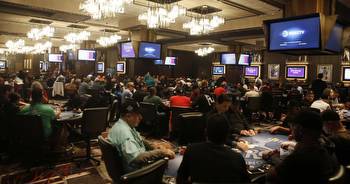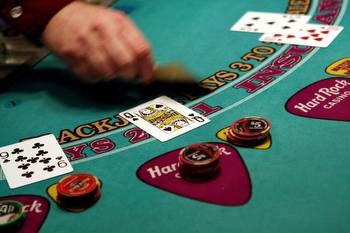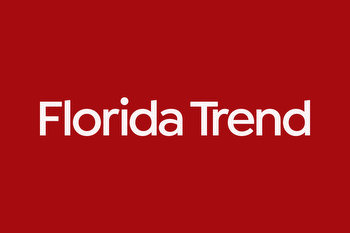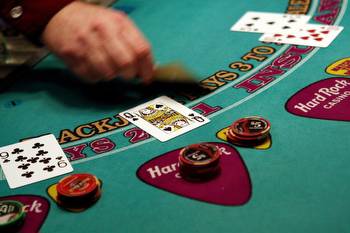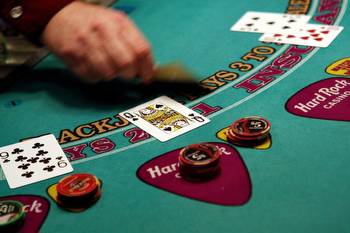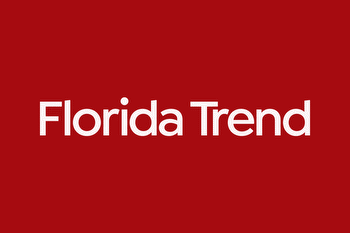Seminole Tribe launches campaign to fend off challenges to Florida gambling pact

TALLAHASSEE — After nailing down a deal that gave it control over sports betting in the state, the Seminole Tribe is trying to clinch its status as Florida’s gambling giant by squashing two proposed constitutional amendments backed by potential competitors.
And with billions of dollars at stake, the tribe is attacking on more than one front.
The Seminoles have poured millions of dollars into advertising to pump up its deal with the state and could bankroll even more to stymie ballot initiatives supported by some national gambling powerhouses.
The war over wagering comes about six months after Gov. Ron DeSantis and Seminole Tribe of Florida Chairman Marcellus Osceola Jr. signed off on a deal allowing the tribe to operate online sports betting available to people throughout the state. The agreement, known as a compact, also requires the tribe to contract with a handful of pari-mutuel operators that will market sports betting and get a cut of profits generated by online wagers.
In exchange for operating sports betting and other benefits such as being allowed to offer craps and roulette at tribal casinos, the Seminoles have agreed to pay the state at least $2.5 billion over the first five years of the three-decade deal.
Shortly after lawmakers approved the compact in a May special session, other major gambling players launched efforts to place two proposed constitutional amendments on the 2022 ballot. But a tight timeline, competition for signature gatherers and the tribe’s opposition could shut out the amendments.
One of the proposals, backed by online platforms DraftKings and FanDuel, would legalize sports betting at professional sports venues, pari-mutuel facilities and statewide via mobile applications. The measure could snatch away the tribe’s control of online betting games.
The tribe quietly rolled out its online sportsbook on Monday, with no fanfare and no comments to the press.
Another measure, supported by gambling company Las Vegas Sands Corp., would open the door for casinos at existing gambling facilities in North Florida.
Committees behind the ballot initiatives are scrambling to obtain the hundreds of thousands of signatures required to put the measures on next year’s ballot. They each need 891,589 valid petition signatures by a Feb. 1 deadline.
For months, the tribe has been paying consultants to circulate a petition asking voters to “support the Seminole compact and billions in new revenue for the people of Florida.”
The Seminoles’ campaign is known as a plebiscite. And because they’re not trying to change the state Constitution, the Seminoles don’t have to follow restrictive laws aimed at making it harder to place initiatives on the ballot.
For example, a 2019 law makes it illegal to pay petition gatherers based on the number of signatures they collect.
Backers of the proposed amendments maintain that the tribe’s plebiscite is making it harder to hire and retain workers in the cutthroat political ballot-initiative arena because the Seminoles are able to pay by the signature.
The tribe also recently launched a multimillion-dollar television and online ad campaign urging Floridians to eschew the proposals.
The Seminoles say their signature-gathering effort and the ads are designed to educate voters about the benefits of the compact.
“Internal polling showed that voters believed the tribe was somehow involved with the other two initiatives and Floridians were not fully aware of the compact. The tribe launched a full-fledged campaign with statewide television and digital advertising to increase awareness and understanding of the compact, plus local community outreach to also collect signatures of support,” said Gary Bitner, a spokesman for the Seminoles.
But the tribe’s critics complain that its stance is contrary to a position just three years ago when the Seminoles were a major contributor to a committee behind a constitutional amendment that requires statewide approval for future gambling expansions.
Latest Gambling
“The state of Florida has created an 800-pound gorilla who can spend indiscriminately to prevent any competition whatsoever from coming into the marketplace,” said Nick Iarossi, a Tallahassee lobbyist whose clients include Las Vegas Sands.













